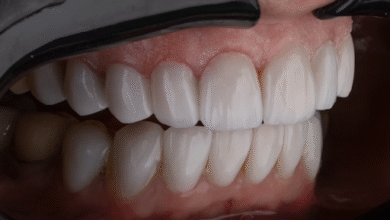Understanding Coprophagia In Dogs

The act of consuming feces, known as coprophagia, is a behavior that can occur in both humans and animals. This is commonly observed in certain species, such as rabbits and dogs. This behavior can cause serious health issues. Consuming feces can lead to the transmission of multiple kinds of parasites and diseases. There are a variety of factors that can contribute to coprophagia, including dietary deficiencies, behavioral issues, and medical conditions. In this article, we will talk about the causes of coprophagia and discuss ways in which it can be addressed and treated.
As mentioned earlier, coprophagia in dogs is the act of consuming feces, either one’s own or that of another animal. And there are a few different possible reasons why an animal might engage in coprophagia.
Lack of nutrients or minerals in the diet
In some cases, the dog may not be getting enough nutrients and minerals they need. Some animals may eat feces in order to obtain extra vitamins or minerals that are not present in their regular diet. This is more commonly observed in herbivorous animals, such as rabbits, who have a high-fiber diet and may eat their own feces in order to extract additional nutrients.
Behavioral Issues
Another reason why an animal or person might engage in coprophagia is due to a behavioral issue. In some cases, coprophagia may be a sign of anxiety, stress, or boredom. For example, a dog that is left alone for long periods of time may start eating feces as a way to cope with its loneliness or boredom. In other cases, dogs just eat their feces for attention. When the owner sees this behavior, of course, they will react, and dogs do this whether the attention they get is positive or negative.
Medical reasons
There are also medical reasons why an animal or person might engage in coprophagia. For example, an animal with a gastrointestinal issue, such as inflammatory bowel disease or a digestive disorder, may be more likely to eat feces. This is because their body is not able to absorb nutrients from their food as efficiently, leading them to seek out other sources of nutrition. In addition, certain medications, such as those used to treat epilepsy, can also cause coprophagia as a side effect.
It’s important to note that coprophagia can have serious health consequences. Consuming feces can lead to the transmission of parasites and diseases, such as salmonella and E. coli. In addition, coprophagia can also lead to the development of dental problems, as the feces can damage the teeth and cause infections.
How can coprophagia be addressed and treated?
You must first identify the underlying cause of the behavior to know how to address this issue. If the coprophagia is due to a dietary deficiency, a change in the diet may be necessary. Talk to the vet to see what nutrients your dog is lacking and change their diet.
You can also use supplements for support. If it is due to a behavioral issue, such as anxiety or boredom, addressing the root cause of the behavior and providing positive reinforcement for alternative behaviors can be helpful. For example, a dog that is eating feces out of boredom may benefit from increased exercise and stimulation. If they are constantly anxious, give them some attention and ensure that their environment is safe and comfortable. In some cases, medication may be necessary to address underlying medical issues that may be causing the coprophagia.
Conclusion
In conclusion, coprophagia is the act of consuming feces, either one’s own or that of another animal. It can be caused by a number of factors. While coprophagia can have serious health consequences, it is a behavior that can be addressed and treated with the right approach. By identifying the underlying cause of the behavior and taking steps to address it, coprophagia can be managed and prevented.




